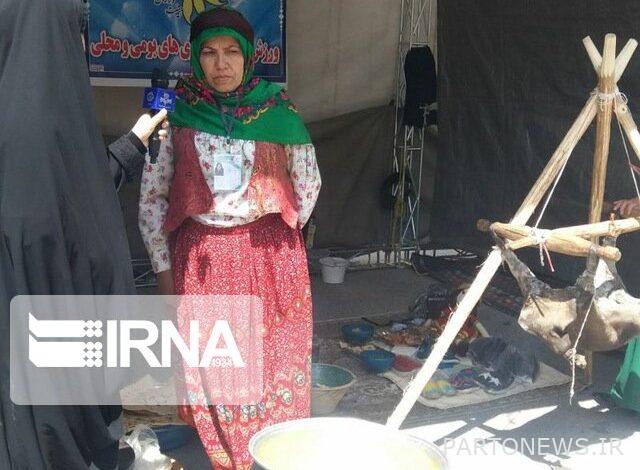I invite women from focusing on smartphones to the workplace and production

Ruqiya Azizi who was born in 1348, and with the marriage of his older sister in 1357, he played the role of supporting his parents to provide livelihood, told IRNA: In those years, we made a plan that I was supposed to help my mother in carpet weaving when I was at home. And in other hours, I would help my father in agricultural work, because of this and of course, I could not continue my education, but we made the conditions so that my brothers and sisters could continue their education after me.
He added: My interest in carpet weaving made me, along with my father’s encouragement in 1364, weave a carpet board with mental designs and engraved with the words “Ya Hossein” and sell it for 1,300 Tomans, which was admired by the people. He took the village of Alishar with him.
Azizi stated: In the following years, when I gained more mastery in carpet weaving, I managed to organize the first carpet weaving training class with the attendance of 15 girls from the village and charged seven thousand tomans as tuition fee, thus increasing the entrepreneurial motivation among the women of Alishar village. After I got married, I became a resident of Parandak city and held training courses for 40 women in Jame al-Qur’an Center of this city.
This entrepreneurial lady continued: When my husband passed away in 1392, I bought a few weaving machines to earn a living and cover living expenses by getting a loan, and by renting a place, I was able to continue the carpet weaving training activities as well as selling products. I started a production and after my daughter’s marriage I inevitably came to Saveh and in this city with the cooperation of Basij centers and Hasinehs of urban areas as well as nearby villages, I organized carpet weaving training courses for women and now due to not having a permanent place I have to I am mobile in the neighborhoods of the city and villages.
Azizi said: The women who become master craftsmen by attending training courses produce carpets, rugs, and rugs, and I help them sell their products by presenting them in international, national, and provincial exhibitions. I do.
He said: I have recently submitted a request for a facility to one of the banks to receive the amount of 500 million Rials to procure press machines for the production of shoes and shoes, and if this issue is realized, there is a possibility of employment development and even some stores. They have also committed to buy up to 100 pairs of manufactured givas a week, which can be a great help to the economy of the households whose women are active in this field.
The entrepreneur lady Alishari added: Whenever I meet women who are sitting in the street and in front of their homes, I guide and encourage them to work in the field of rugs and weaving and other activities such as the production of baskets and tablecloths from recyclable materials. I do and tell them that instead of sitting and drowning in mobile phones, it is better to spend their time in such activities and earn money.
Azizi said: In addition to the mentioned activities, I have a program for the production of dry beans with the aim of reducing waste, and I will provide training in this field to interested women, but the implementation of this plan and other projects that create jobs for women require the support of the authorities. And it is the government that provides cheap facilities and without administrative and banking mazes, while it is also a problem if stalls are created on the side of the roads for women entrepreneurs, especially in the summer season, so that they can sell their products. it’s too important.
He said: If they provide us with a place for training and production of products in Alishar village, we can employ a significant number of women, and besides that, the idea of collecting sheep’s wool that is left in nature or burned for Turn into yarn and finally implement the main product, i.e. rugs, carpets and knits, which can be considered as a help in cleaning the environment.
He said: In the field of collecting medicinal plants in the region, activities are also carried out by women, and after picking, we send the product to one of the doctors in the field of medicinal plants in Tehran, and after receiving the amount, the share of each woman We deposit to their account.
Alishar, with 366 households and a population of about 1,100 people, is one of the old villages with touristic and historical attractions located in the Kharghan section of Zarandieh city, and one of the historical monuments of this village, named Tepe Qala Bash, was registered in the national register in 1380. .

